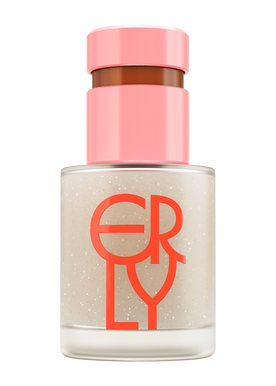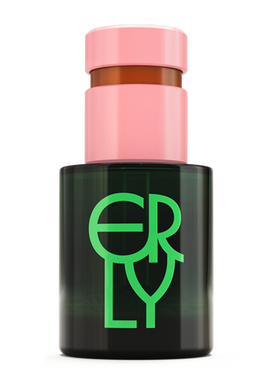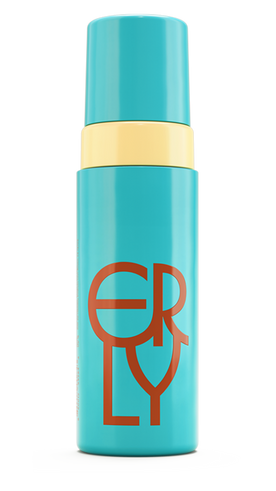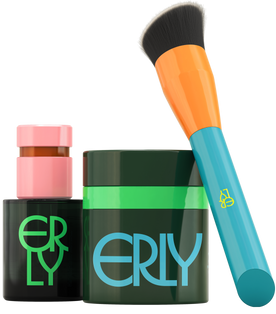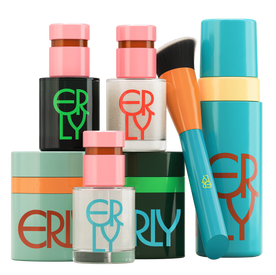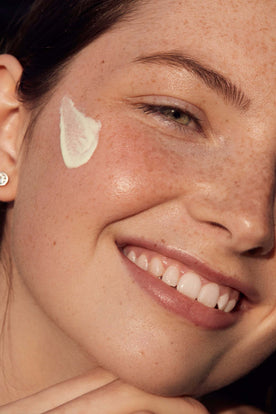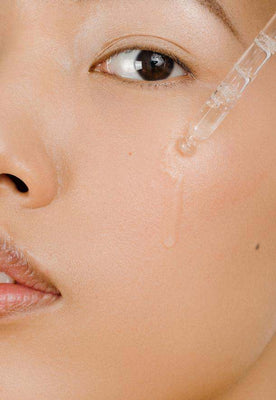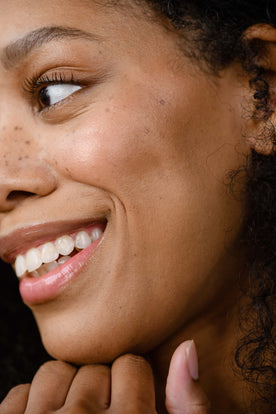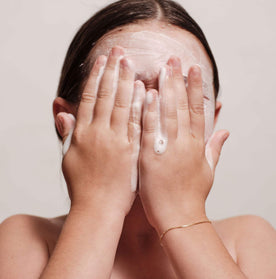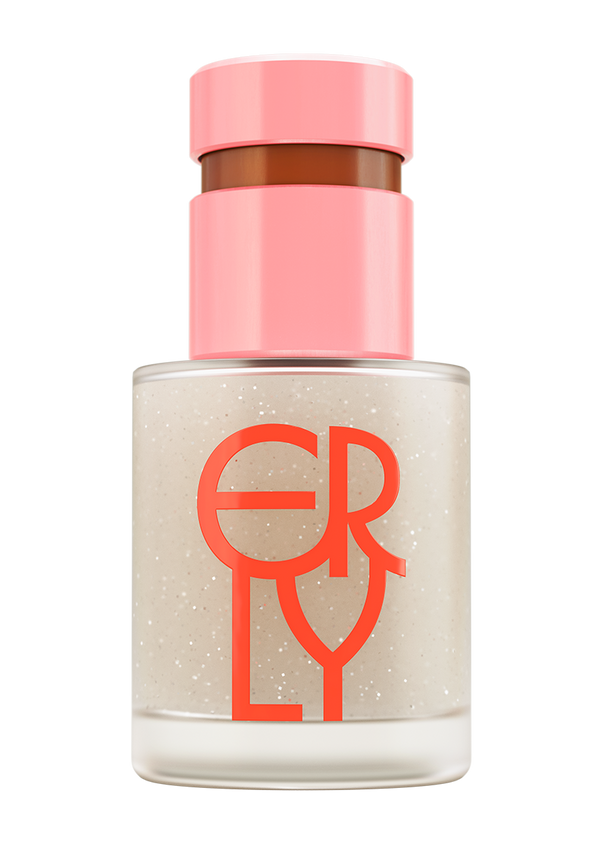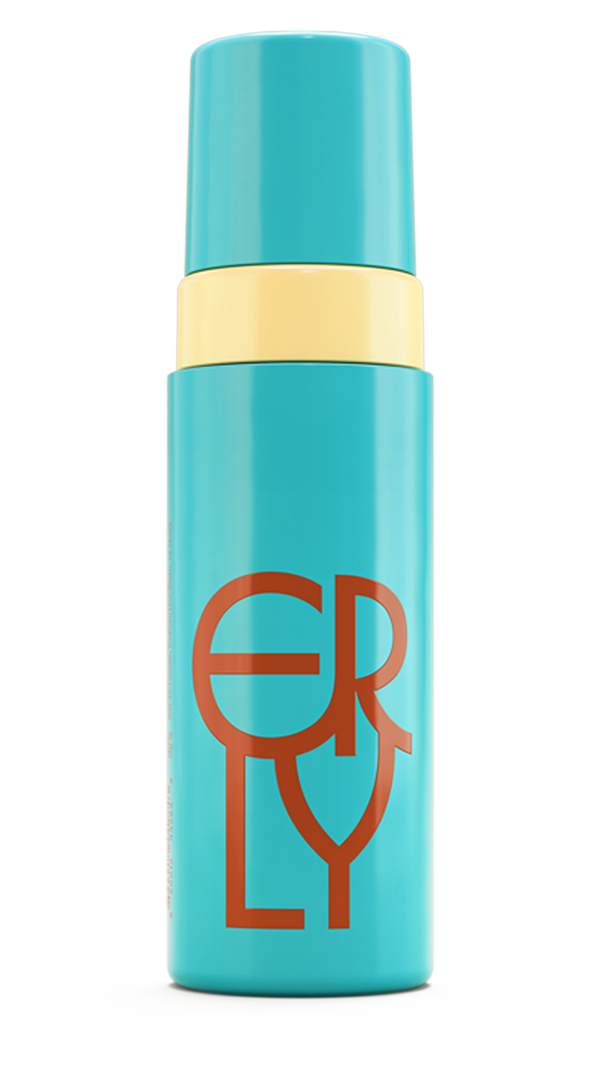As a dermatologist and co-founder of ERLY, I’ve seen firsthand how skincare can be far more than just a surface-level ritual. It’s easy to dismiss self-care as a fleeting trend—another hashtag, another buzzword—but taking a few mindful moments each day to care for your skin can have a meaningful impact on your overall well-being and show you that skincare is self-care.
More and more research links daily skincare practices with improvements in mental health, stress reduction, and confidence. What might look like a simple cleanse or moisturizer application is often a small but powerful act of grounding, reminding us to care for ourselves in both body and mind.
The Mind–Skin Connection
Your skin is the largest organ in your body and one of the first to reflect changes in your internal state. Stress, lack of sleep, hormonal fluctuations, and environmental factors all show up on the skin. When you’re feeling run down, you might notice more breakouts, dullness, or sensitivity. That’s because your skin and your nervous system are closely intertwined—a connection known as the brain–skin axis, a well-studied psychodermatology phenomenon.
When you experience stress, your body releases cortisol, which can increase oil production, weaken the skin barrier, and trigger inflammation. Over time, chronic stress can exacerbate conditions like acne, rosacea, or eczema. This creates a frustrating loop: stress affects the skin, and skin issues can increase stress and self-consciousness.
A consistent skincare routine can help break that cycle—not just by supporting your skin barrier, but also by giving your mind a calm, predictable ritual.
Rituals That Reduce Stress
One of the most overlooked benefits of skincare is its ability to serve as a daily form of mindfulness. A few minutes at the sink in the morning and evening can become a quiet pause in an otherwise hectic day.
When you gently massage in your cleanser, feel the water on your skin, or take a deep breath as you apply a moisturizer, you’re giving yourself permission to slow down. Even this brief focus on the senses—touch, scent, temperature—can help shift your body out of stress mode and into a calmer state.
This isn’t just anecdotal. Studies show that sensory experiences like touch and scent can activate the parasympathetic nervous system, which helps regulate mood and lower cortisol levels. A skincare ritual is a simple, accessible way to weave these calming moments into your daily life.
Building Confidence Through Skin Health
Healthy skin isn’t about perfection—it’s about feeling good in your own skin. As a dermatologist, I often remind patients that visible improvement in the skin can have a real psychological impact. Clearer, calmer, or more hydrated skin can boost self-esteem, improve social comfort, and support a more positive self-image.
But the confidence boost isn’t only about the visible results. It’s also about the act of showing up for yourself. When you commit to caring for your skin, you’re reinforcing a message that your well-being matters. Over time, that daily commitment can translate into stronger self-worth and resilience.
The Power of Gentle Care
One thing I emphasize often is that skincare should never be harsh or punitive. Many people have been conditioned to believe that “effective” means aggressive—scrubbing, stripping, or over-exfoliating. But in my practice, I’ve seen the best results come from supporting and protecting the skin barrier rather than fighting it.
That philosophy is why we created ERLY with hypoallergenic formulas that are safe for all ages and skin types. Products like our Daily Soothe, formulated with niacinamide, are designed to calm and support sensitive skin while maintaining a healthy barrier. When your skin feels balanced, it’s not only healthier but also more resilient to environmental and emotional stressors.
Creating a Skincare Ritual That Supports Well-Being
If you’ve ever felt overwhelmed by complicated routines or the pressure to have “perfect skin,” know that your skincare practice doesn’t need to be elaborate to be effective. In fact, simpler is often better. Here are a few steps I recommend for creating a routine that supports both your skin and your mental wellness:
-
Keep it gentle and consistent.
Start with a mild cleanser that won’t strip your skin, followed by a hydrating serum or treatment, and finish with a nourishing moisturizer. Simplicity builds consistency—and consistency builds results. -
Engage your senses.
Notice the textures and temperatures. Breathe in the light scent of your products. Let it be a moment that brings you back to the present. Using a tool like the Mixer can elevate your experience. -
Make it a ritual, not a chore.
Think of these moments as a way to check in with yourself, not just something to cross off your list. Maybe you light a candle, play soft music, or simply enjoy the quiet. -
Tailor to your skin’s needs.
If your skin is sensitive or stressed, focus on soothing ingredients like niacinamide or hyaluronic acid. If it’s feeling dull, gentle exfoliation once or twice a week may help. Your skin’s needs will shift—listen to them. -
Give it time.
True skin health and confidence aren’t built overnight. It’s the daily, compassionate care that creates real change.
Skincare as a Form of Self-Respect
Skincare isn’t about chasing trends or flawless selfies. It’s about acknowledging that your well-being deserves attention, every day. A few minutes spent caring for your skin can ripple outward—reducing stress, reinforcing self-worth, and creating small moments of peace in a busy world.
As a dermatologist, I’ve seen countless patients transform not just their skin, but their confidence and mindset through these simple daily rituals. As a founder, I’m deeply committed to helping people access products that make those rituals gentle, safe, and effective.
A Gentle Reminder: Skincare is Self-care
You don’t need the longest routine, the most expensive products, or the perfect complexion to prioritize self-care. You just need to show up for yourself—consistently, compassionately, and without judgment.
Skincare is self-care. And self-care isn’t a trend. It’s a way of sustaining yourself, one mindful moment at a time.


